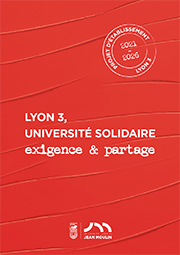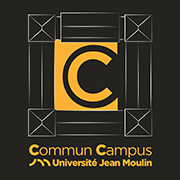AccueilRechercheProgrammes et productions scientifiquesThèsesThèses soutenuesThèses soutenues - 2006-2021Thèses soutenues - 2019
-
Partager cette page
- Recherche,
HEGE Markus
Comment générer de l'intelligence organisationnelle par une capacitation du potentiel humain caché dans le cadre de la théorie W de Patrick HAIM : Étude de cas.
Publié le 30 avril 2019 – Mis à jour le 27 août 2019
Thèse en Science de Gestion, soutenue le 26 avril 2019.
Des travaux réalisés dans le cadre d´une recherche exploratoire auprès de 200 cadres d’une organisation industrielle de Janvier 2016 à Novembre 2017 ont permis d´expérimenter un projet de capacitation du potentiel humain caché fondé sur la considération et la liberté de choix des individus de la théorie W (Haim, 2014), et l’approche dysfonctionnelle (Savall, Zardet, 1992).
Ces travaux proposent une contribution au modèle socio-économique (Savall, 1975) et systémique-intelligent (Haim, 1997) à travers une étude de modélisation de capacitation (compris comme la prise en charge de l´individu de son propre destin) du potentiel humain caché dans des organisations complexes pour plus de performance humaine - étude de cas des travailleurs du savoir de la filiale américaine de Bosch Rexroth.
The research carried out as an intervention research with 200 knowledge workers of an industrial organization from January 2016 to November 2017 allowed to experiment a project of capacitation of the hidden human potential based on the consideration and the freedom of choice from theory W (Haim, 2014), and the dysfunctional approach (Savall, Zardet, 1992).
The conducted research proposes a contribution to the socio-economic model (Savall, 1975), and systemic-intelligent model (Haim, 1997) through a modeling study of Capacitation (as the self determination of one´s destiny) of hidden human potential in complex organizations in order to allow more human performance - a case study of knowledge workers of the US subsidiary of Bosch Rexroth.
Ces travaux proposent une contribution au modèle socio-économique (Savall, 1975) et systémique-intelligent (Haim, 1997) à travers une étude de modélisation de capacitation (compris comme la prise en charge de l´individu de son propre destin) du potentiel humain caché dans des organisations complexes pour plus de performance humaine - étude de cas des travailleurs du savoir de la filiale américaine de Bosch Rexroth.
The research carried out as an intervention research with 200 knowledge workers of an industrial organization from January 2016 to November 2017 allowed to experiment a project of capacitation of the hidden human potential based on the consideration and the freedom of choice from theory W (Haim, 2014), and the dysfunctional approach (Savall, Zardet, 1992).
The conducted research proposes a contribution to the socio-economic model (Savall, 1975), and systemic-intelligent model (Haim, 1997) through a modeling study of Capacitation (as the self determination of one´s destiny) of hidden human potential in complex organizations in order to allow more human performance - a case study of knowledge workers of the US subsidiary of Bosch Rexroth.
Mots-clés : potentiel humain caché, autonomie, considération, performance, Approche socio-économique, Théorie W
Keywords : Hidden Human Potential, Autonomy, Consideration, Performance, Socio-Economic Approach, Theory W
Directeur(trice) de thèse : Patrick HAIM
Membres du jury :
- M. Patrick HAIM, Directeur de thèse, Professeur HDR au SM ESCEM, Poitiers,
- M. David M. BOJE, Professor emeritus of Management, New Mexico State University USA,
- Mrs Grace Ann ROSILE, Professor emeritus of Management, New Mexico State University USA,
- Mme Sandrine BERGER-DOUCE, Professeur HDR, Institut Mines Telecom Saint Etienne.
Président (e) du jury : David M. BOJE
Documentation
Mise à jour : 27 août 2019







